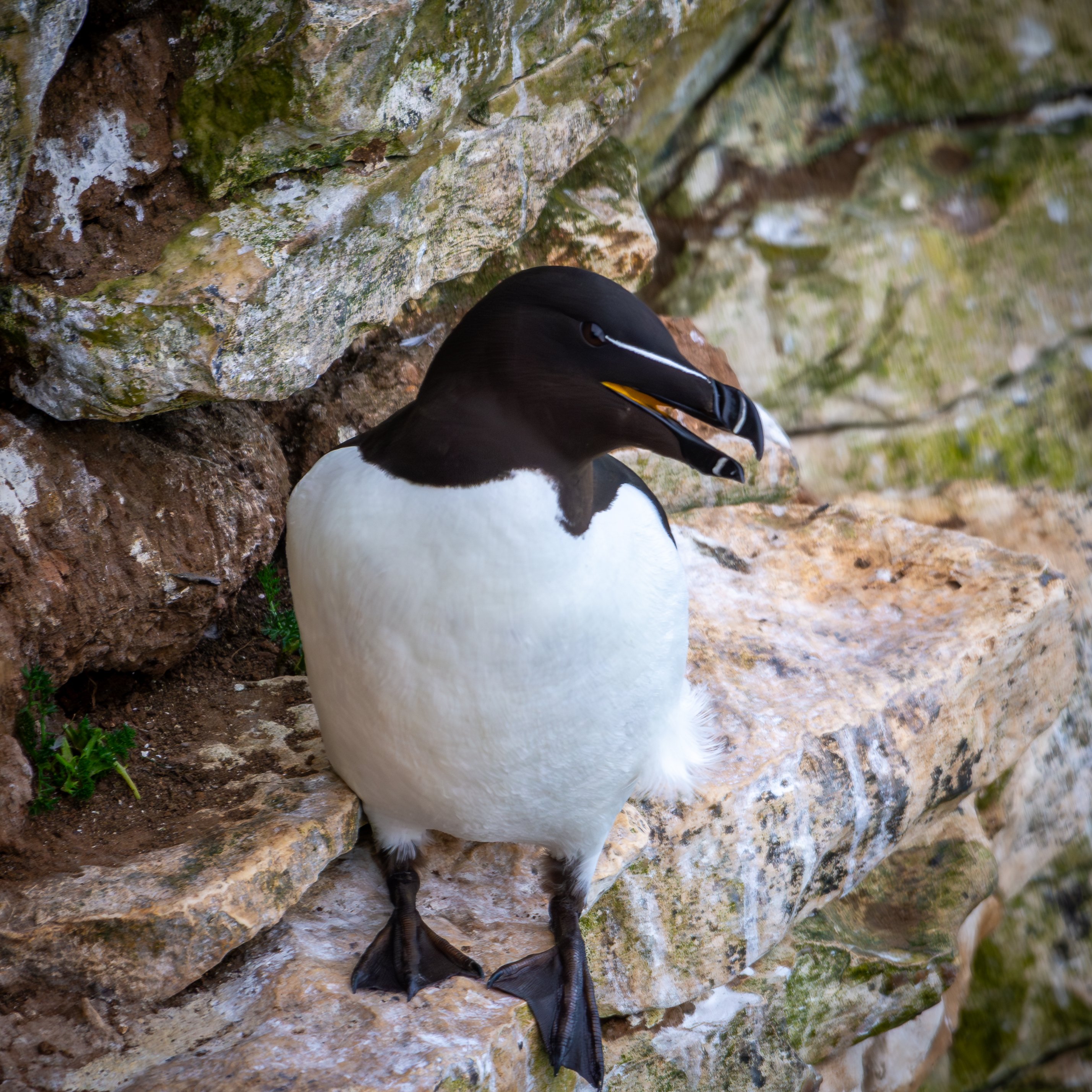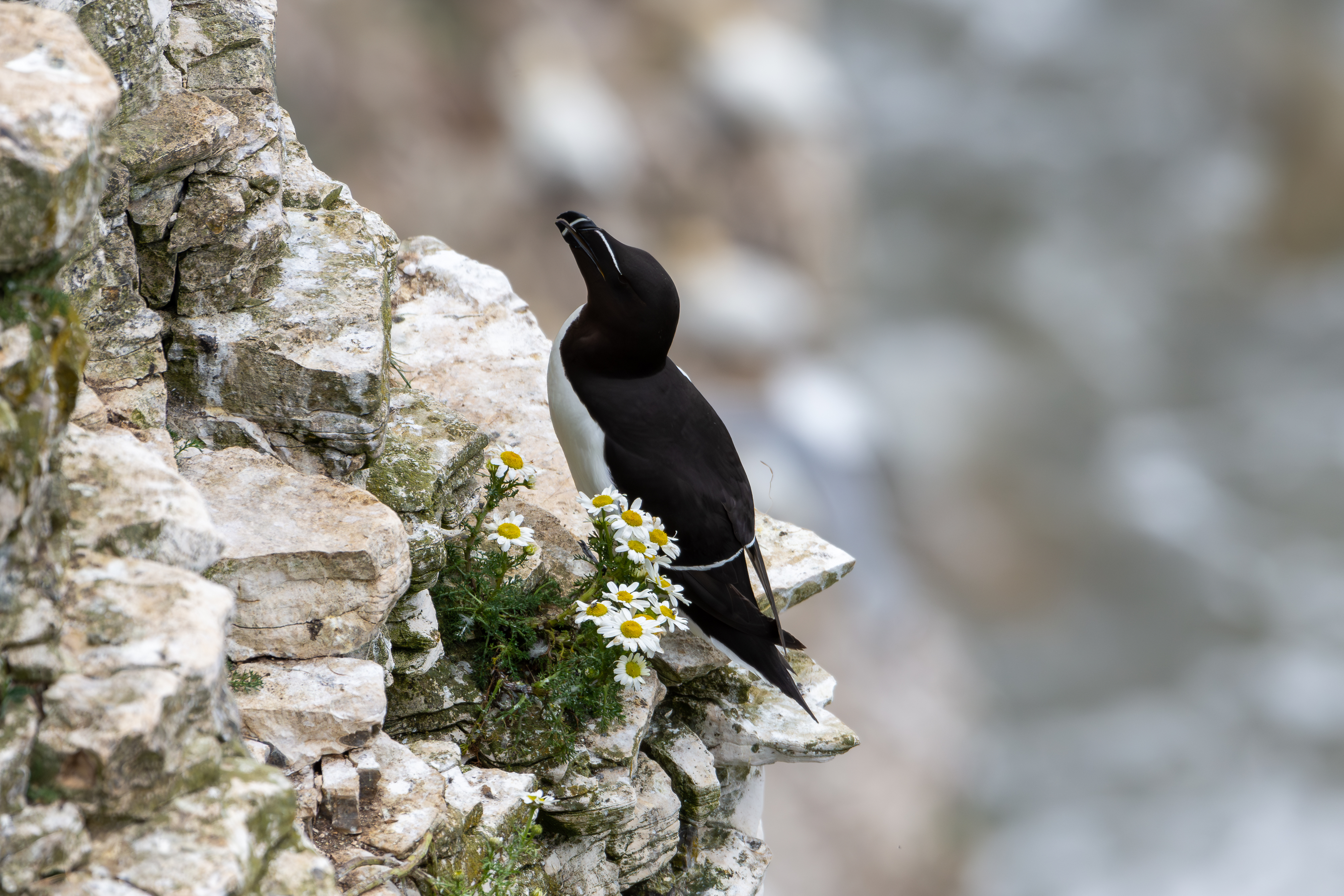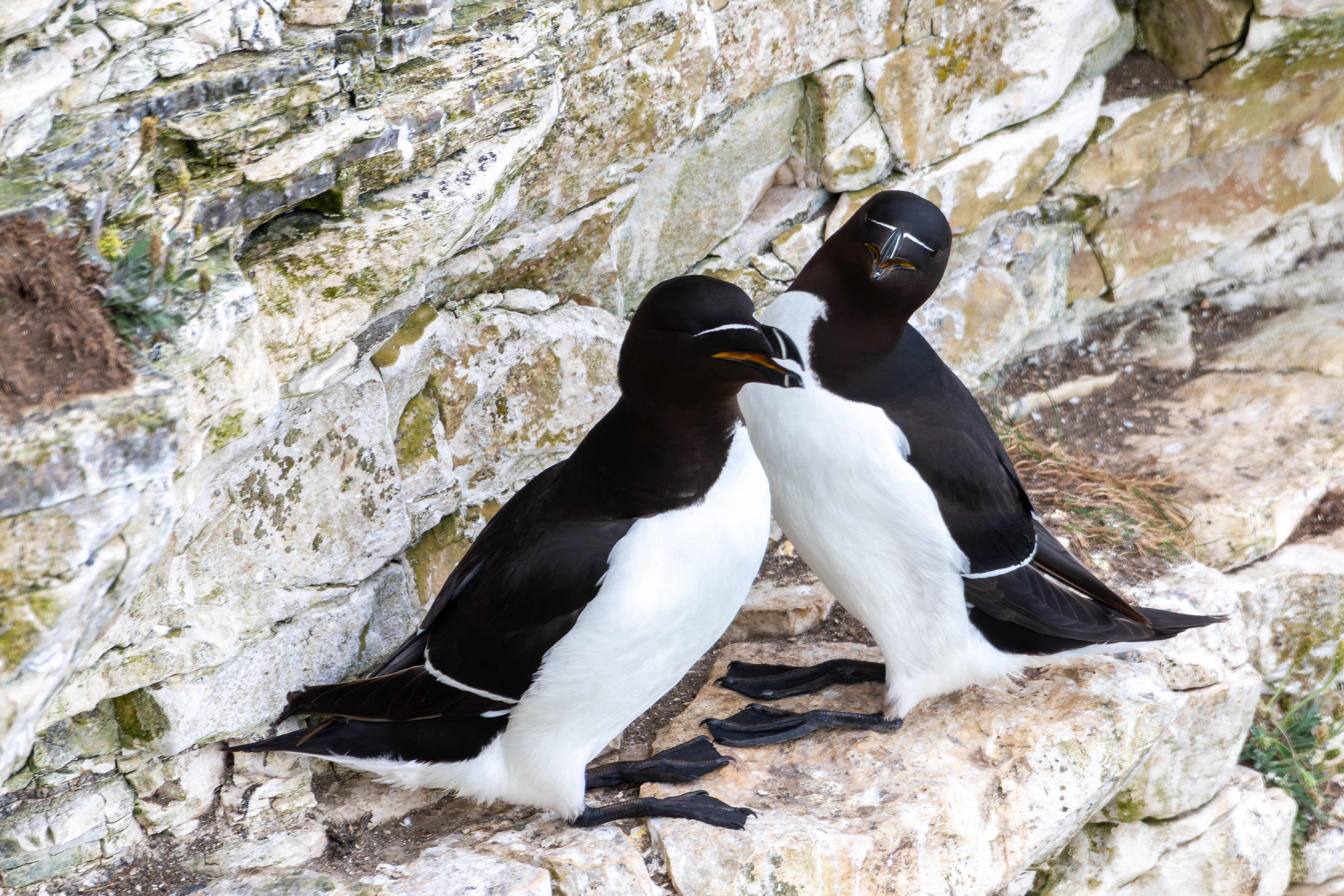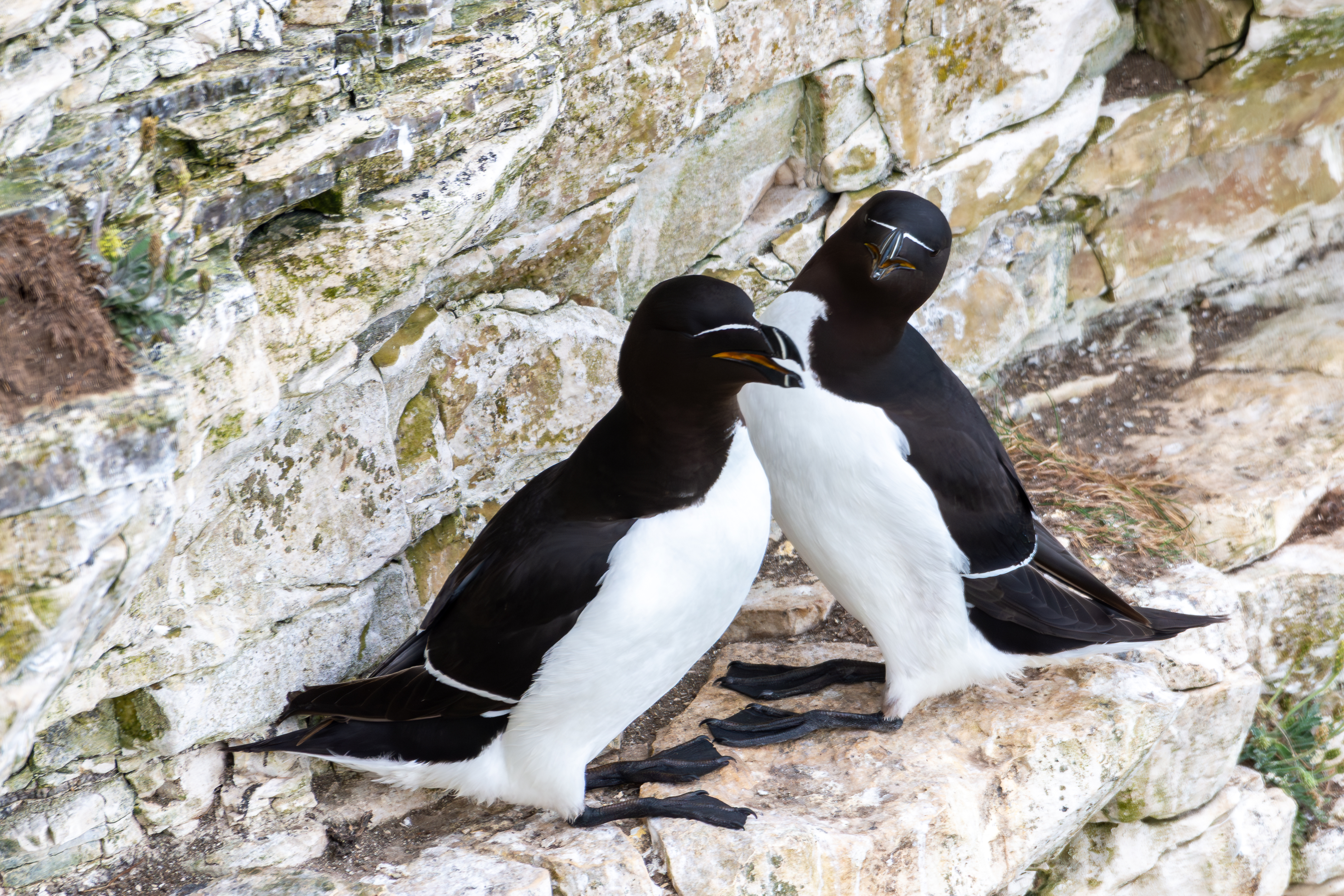Razorbill (Alca torda)
Bempton Cliffs, East Yorkshire, UK, May 2019.
Nikon D7200, Nikon 200-500mm f/5.6
f/6.3, 1/800s, ISO 500, 420mm

f/6.3, 1/400s, ISO 500, 480mm

f/6.3, 1/1600s, ISO 800, 380mm

f/6.3, 1/2000s, ISO 800, 500mm

f/6.3, 1/640s, ISO 500, 420mm

Razorbills are truly fasinating birds and I think one of the most handsome. Their contrasting colouration and their bright yellow mouths and strong bills give them a really distinctive look.
They are member of the Auk family and are also known as the Razor-billed Auk, or Lesser Auk. Their closest relative is the now sadly exitinct Great Auk.
Like the other members of the Auk family, they spend most of their time out at sea, coming back to land for the breeding season. If you are ever lucky enough to watch them underwater you will see them using their wings as propulsion, in the same manner as a penguin.
Razorbills can be found around the coastlines of the North Atlantic and they generally live in large colonies. The Razorbill chooses only one partner for life and they only have one chick per year. They also don't start to breed until they are at least 3 years old and sometimes not until they are 5. They can also skip a breeding season as they get older. All this makes them very vulnerable to population decline.
I took these pictures at Bempton Cliffs on the East Yorkshire coast. Bempton and the surrounding Flamborough Head host England's largest onshore seabird breeding colonies, many species and over 300,000 birds. There can be as many as 20,000 pairs of Razorbills during the breeding season making it one of their largest colonies in the world.
From a photography stand point they can be a bit tricky. Like any black and white bird getting good exposure is always going to be a compromise. It is also difficult to get their eyes to standout from the surrounding feathers. However, they do seem to like to pose, they often display engrossing behaviours, and that yellow mouth makes an amazing contrast to the black head.

Thanks for the kind words.
The picture is called Waiting for her love. They pair for life and she looked like she was waiting for her mate to arrive after being out at sea since the last breeding season.